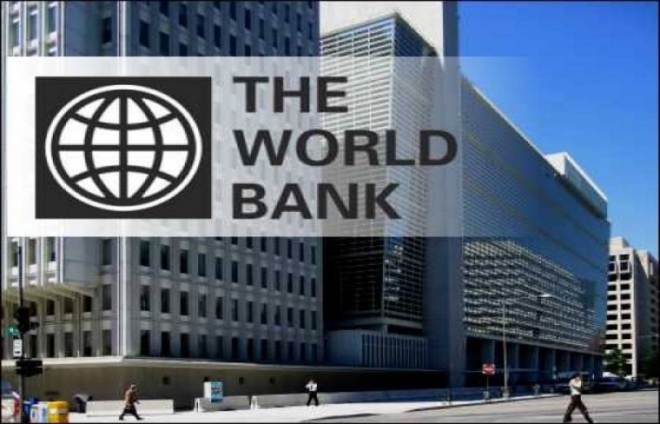Some additional two million people will benefit from a second phase of the West Africa regional Food Systems Resilience Programme (FSRP-2) approved for a total amount of $315 million in International Development Association (IDA) financing.
FSRP-2 will support Chad, Ghana and Sierra Leone to increase their preparedness against food insecurity and to improve the resilience of their food systems. This comes at a moment where it is projected that approximately 38.3 million people in West Africa are projected to be in food security crisis.
Across the targeted areas in the three countries, FSRP-2 will help to reduce food insecure people by 25%.
Access to hydro and agrometeorological advisory services will be extended to over 400,000 food system actors, while nearly 500,000 producers are expected to adopt climate smart agricultural technologies. Moreover, about 12,000 hectares of land area will benefit from integrated landscape management practices, and intra-regional traded productions in selected value chains will increase by 30%.
“Multiple shocks, driven by climate change and environmental degradation, weaknesses of the food markets, conflicts and insecurity, Covid-19 implications, and the war in Ukraine have further deteriorated food insecurity and inflation across West Africa”, declared Massandjé Toure-Litse, the Commissioner for Economic Affairs and Agriculture at the Economic Community of West African States (ECOWAS).
“FSRP-2 further expands cooperation across the ECOWAS region to ensure food security, now and into the future.”
More specifically, the new financing will help to (i) increase the effectiveness of agriculture and food crises prevention and management and strengthen the capacities to adapt to climate variability and change, (ii) strengthen the adaptive capacity of the food system’s productive base and make it sustainable, and (iii) support the regional food market’s integration by linking the beneficiary countries, consolidating their food reserve systems, and strengthening the development of strategic regional value chains”.
“Facilitating the trade of agricultural goods and inputs within and across national borders in West Africa is a key element to address food insecurity in the region”, said Ousmane Diagana, World Bank’s Vice-President for Western and Central Africa.
For Boutheina Guermazi, World Bank’s Director for Regional Integration for Sub-Saharan Africa, the Middle East and Northern Africa, “The approval of FSRP-2 and incorporation of Chad, Ghana and Sierra Leone expands impacts not just of national activities, but of targeted spill-over effects from regional activities. We are eager for this innovative program to maximize its reach across West Africa”.
With FSRP-2, the multi-phase FRSP program now amounts to a total of $645 million of IDA (instead of the $570 million initially approved in November 2021). The first phase of the programme (FSRP-1, $330 million, approved in November 2021) launched in June 2022, bringing together four countries (Burkina Faso, Mali, Niger, Togo) and three regional organizations (the Economic Community of West African States, ECOWAS; the Permanent Interstate Committee for Drought Control in the Sahel, CILSS; and the West and Central Africa Council for Agriculture Research and Development, CORAF) to implement a broad programme to increase agricultural productivity, promote intraregional value chains and trade, and build regional capacity to manage agricultural risk.
It is expected that both FSRP-1 and FSRP-2 will reach a total of 4.35 million direct beneficiaries (including farmers) across West Africa, with focus on women and youth.
The World Bank’s International Development Association (IDA), established in 1960, helps the world’s poorest countries by providing grants and low to zero-interest loans for projects and programmes that boost economic growth, reduce poverty, and improve poor people’s lives.
IDA is one of the largest sources of assistance for the world’s 77 poorest countries, 39 of which are in Africa.
Resources from IDA bring positive change to the 1.5 billion people who live in IDA countries. Since 1960, IDA has supported development work in 113 countries.
Annual commitments have averaged about $18 billion over the last three years, with about 54 percent going to Africa.
Latest Stories
-
Bawumia dominates but NDC supporters back Ken Agyapong in NPP race – Survey
3 minutes -
Open Letter to the President: Galamsey is dead; what we face now is environmental terrorism, crash it now
7 minutes -
Inaki Williams defends brother Nico after fans erase image from mural amid Barcelona transfer rumours
15 minutes -
Next Joy Business Economic Forum comes off on June 25, 2025
36 minutes -
Scars of Hooliganism: Club officials know their hooligans – Eric Alagidede
48 minutes -
Cybersecurity must be core to financial governance – BoG First Deputy Governor
1 hour -
Scars of Hooliganism: Violence drives away sponsors for the league – Kwesi Nyantakyi
1 hour -
Kumasi Airport City project takes off – Asantehene calls for policies to attract local private capital
1 hour -
Borderless Africa key to SME growth and economic independence – Prof Evans Gyasi
1 hour -
Scars of Hooliganism: Identifying hooligans in big crowd is challenging – Ghana Police
1 hour -
Trade Growth Network launched to empower Ghanaian SMEs and promote intra-African trade
1 hour -
‘We could have scored seven’ – Black Queens coach happy with friendly win over Malawi
1 hour -
Rebecca Ekpe shares vision as she targets GJA Vice President position
2 hours -
Ghana stun Uganda in opening game of 2025 Rugby Africa Men’s 7s in Mauritius
2 hours -
Declaring state of emergency over illegal mining premature – Mustapha Gbande
2 hours

